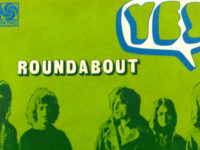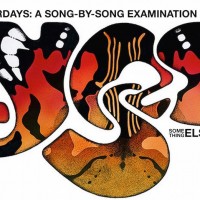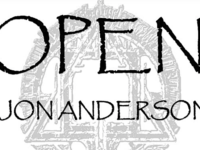On the eve of the release of a new album, the Roy Thomas Baker-produced Heaven and Earth, Yes fans have their collective panties in a bunch. Excepting those who follow Journey, no other group seems to be as obsessed with the band’s past rather than in celebrating the fact that these wonderfully talented musicians continue to make music and play their classics live.
Obviously, Yes has a great history of innovative and challenging progressive music and stellar rock and roll. They’ve reminded us of that, over the past three years or so, with in-concert revisits to some of their most acclaimed works, including Close to the Edge and The Yes Album.
That, however, only tells part of the story for this ever-evolving group. And it may be why so many disagreements continue. After all, for every Fragile, there are several others that are routinely overlooked — rightly or wrongly. These are unlikely to become part of Yes’ entire-album concert rotation anytime soon, though (in most cases) that leaves gems undiscovered.
Feel free, after we take a spin through five of them, to resume your previously scheduled arguments …
OPEN YOUR EYES, 1997: Considered by some fans to be a Billy Sherwood-produced Chris Squire solo album, but that’s simply not accurate. Sure, Squire and Sherwood were the driving forces in the band at this point, steering it down a more straight-ahead rock path. But that doesn’t mean Open Your Eyes doesn’t have its moments, including the rocking “New State Of Mind” and the title track. As one of less than a handful of two-guitar Yes albums, it’s an interesting trip.
TALK, 1994: This release followed the (re)Union tour, and features a reunited Trevor Rabin-led lineup. He’s clearly in charge of the writing and production, and what resulted was a guitar/drums/vocals-focused, yet nuanced album which has actually aged well. This is also the last album to feature the original Yes keyboardist Tony Kaye, though the listener is hard pressed to identify his contributions. Standout tracks include “I Am Waiting” and “The Endless Dream.”
TORMATO, 1977: This album sounds like Yes has nearly reached the end of the line. Certainly, they were nearing the end of these particular stints by Jon Anderson and Rick Wakeman, anyway. The results, though much maligned, do rock and, as always, feature fine playing. Still, for everything right about it, there are two things which make Tormato a tough listen. Lyrics? Even for Jon Anderson, these are mystifying. Great keyboards? Sure, but even Wakeman’s chops can’t save these so-so songs. Stand out tracks? OK, maybe “Release, Release.” They badly needed an injection of new energy and ideas.
DRAMA, 1980: Enter keyboard whiz Geoff Downes and vocalist Trevor Horn, who helped a band fighting for its creative life produce a great album — and without Anderson and Wakeman. Drama, even today, offers a lean, muscular, progressive yet contemporary sound. Turns out, it’s possible to make a great Yes album without Jon Anderson. Too bad this version of the band didn’t last — though they managed to get close with 2011’s Fly From Here, which featured some leftover material from this period. Standout Drama tracks include “Does It Really Happen,” “Machine Messiah” and “Tempus Fugit,” perhaps the most rocking Yes song since “Going For The One.”
BIG GENERATOR, 1987: Forever labored over, yet it still produced mixed results. As the follow-up to the most successful Yes album ever, Big Generator managed two hit singles, but there are few progressive-rock elements and the album is mostly forgettable. Great guitar, a few great Kaye organ passages, big Alan White drums, but somehow it all still rings hollow anyway. Standout tracks? “Rhythm Of Love” is a fine rock song; “I’m Running” almost sounds like Yes. That in itself, however, is telling. It also turns out that Jon Anderson can be the singer, and Yes still won’t always sound like Yes.
- Thelonious Monk – ‘Thelonious Himself’ (1957; 2025 vinyl reissue) - May 26, 2025
- Ben Tweedt – ‘Life Cycle’ (2025) - May 25, 2025
- Fernando Perdomo – ‘Waves 5’ (2025) - May 13, 2025




